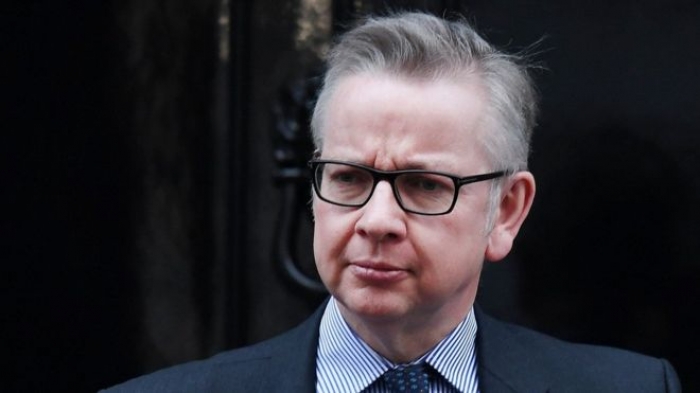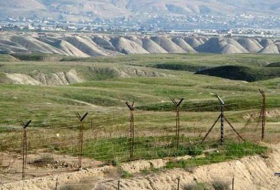But, writing in the Daily Telegraph, he said if British people "dislike the arrangement", they can change it.
Reports suggest the cabinet will meet on 19 December to discuss its "end state" plans for Brexit.
This is just two days before Parliament's two-week Christmas recess.
Mr Gove, one of the cabinet's leading Brexiteers, said the primary agreement between the two sides had "set the scene for phase two" negotiations - where issues such as trade will be discussed.
But he said that "nothing is agreed until everything is agreed" at the end of the process.
After a two-year transition period, the UK would be able to pass laws with "full freedom to diverge from EU law on the single market and customs union", he added.
And the British people would "be in control" to make the government change direction if they were unhappy, he said.
"By the time of the next election, EU law and any new treaty with the EU will cease to have primacy or direct effect in UK law," said Mr Gove.
"If the British people dislike the arrangement that we have negotiated with the EU, the agreement will allow a future government to diverge."
The next general election is currently due to be held in 2022, three years after the UK leaves the EU.
However, it could be sooner if the prime minister calls one, and MPs agree to it, or if the government collapses.
The former Conservative leader, Iain Duncan Smith, said the next phase - the trade discussions - would be the "brutal but vital bit".
'Breakthrough'
Friday's deal between Theresa May and European Commission President Jean-Claude Juncker agreed on three key aspects:
- No "hard border" between Northern Ireland and the Republic
- The rights of EU citizens in the UK and UK citizens in the EU to live, work and study will be protected. The agreement includes reunification rights for relatives who do not live in the UK to join them in their host country in the future
- The so-called "divorce bill" will amount to between £35bn and £39bn, Downing Street sources say. This includes budget contributions during a two-year "transition" period after the UK leaves the EU in March 2019
Mr Juncker said it was a "breakthrough" and he was confident EU leaders would approve it at a European Council summit next week.
Talks can then move onto a transition deal to cover a period of up to two years after Brexit and the "framework for the future relationship" - preliminary discussions about a future trade deal.
However, the EU says a deal can only be finalised once the UK has left the EU.
A final withdrawal treaty and transition deal will have to be ratified by the EU nations and the UK Parliament, before the UK leaves.
Northern Ireland's Democratic Unionist Party, whose opposition on Monday led to talks breaking down, said there was still "more work to be done" on the border issue and how it votes on the final deal "will depend on its contents".
Leave campaigner, Andrea Leadsom, leader of the Commons, said the deal was a "significant achievement" for Mrs May.
"People on all sides of the argument are now seeing that she is determined and is succeeding in making a success of leaving the EU," she said.
'Easy bit'
Iain Duncan Smith, another Leave campaigner, said it had been fascinating to see how the EU had reacted after failing to secure a deal in Brussels on Monday.
"They realised they were staring down the eyes of a no-deal, and so they got into action for the first time for many months, and literally drove with the UK government the changes that were necessary to get this thing on track.
"Why? The EU recognises that they really do need and want a free trade arrangement with the UK," he told BBC Radio 4's Today programme.
But Sir Andrew Cahn, a former head of UK trade and investment, said that was "simply not true", and it was the UK who had blinked first by agreeing to pay more money and by fudging the Northern Ireland issue.
He said the UK had done the "easy bit" and now the UK had to decide what sort of arrangement it wanted with the EU, which has not been done yet.
Barry Gardiner, Labour's international trade secretary, said it was difficult to see the Northern Ireland agreement as anything other than a fudge, as the PM appears to have contradictory red lines.
His party wants to see an agreement which harms neither the settlement, nor the economic situation, he added.
More about: #Brexit















































